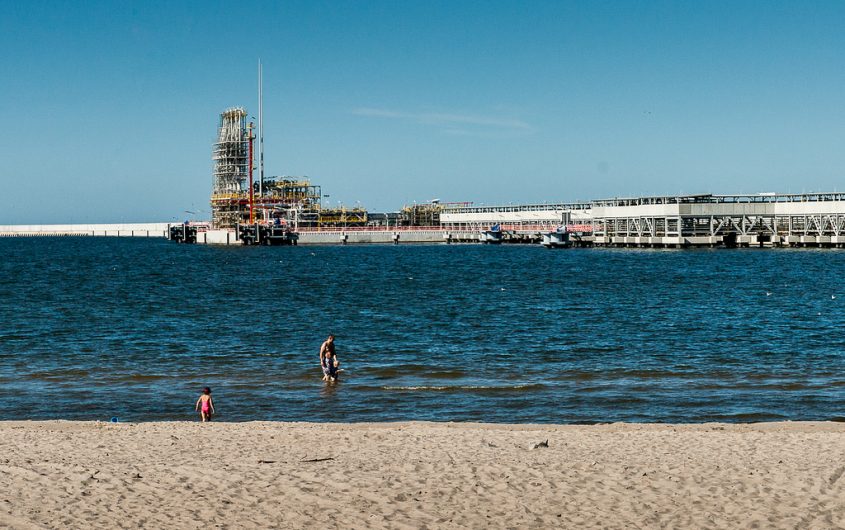
Damian R via Flickr
Germany backs small-scale LNG import terminals despite opposition

Thomas O'Donnell
Hertie School of Governance
Thomas O’Donnell was a DAAD/AICGS Research Fellow in April and May 2015. He is an academic, analyst, and consultant with expertise in the global energy system and international relations. At AICGS, his focus is “U.S. Expert Perspectives on German Energy Vulnerabilities.” Dr. O’Donnell’s teaching and research have encompassed the EU and Russia, Latin America, the Middle East, China, and the USA. His PhD is in nuclear physics from The University of Michigan at Ann Arbor; for the past 15 years he has primarily taught post-graduate international relations and development with a focus on energy and natural resource issues, including at The University of Michigan, The Ohio State University, at The New School University’s JJ Studley Graduate Program in International Affairs (NYC), and at Freie Universität’s JFK Institute (Berlin). At his blog, the GlobalBarrel.com, he follows issues of energy and international affairs, and he also writes frequently for the IP Journal (Berlin), Americas Quarterly (NYC), and Petroguía (Caracas).
Throughout 2008-09, Dr. O’Donnell was a U.S. Fulbright Scholar and Visiting Professor in Caracas at the Center for the Study of Development (CENDES) of the Central University of Venezuela (UCV). He is a Senior Analyst at Wikistrat and consults with various other geopolitical, business-intelligence, and advisory firms. Before doing his PhD, Dr. O’Donnell spent a decade working in U.S. industry, gaining technical experience in automobile manufacturing, railway operations, large-scale HVAC, and in power generation. He has also worked as a radiation safety and health-physics officer at a research nuclear reactor and in medical and other settings. In experimental nuclear physics, he conducted basic research at several particle-accelerator and national laboratory facilities in the U.S., Japan, and elsewhere; and is author or co-author on about 40 peer-reviewed scientific papers. Since 2012, he has lived in Berlin with his wife and youngest children. He speaks English, Spanish, and functional German.
The German government has decided in favor of building small-scale liquid natural gas (LNG) import terminals and infrastructure. In March, Mrs. Merkel’s CDU/CSU-SPD coalition, in its founding pact, pledged to “Make Germany the site for LNG infrastructure.”1 The first facility to win approval is planned for the North Sea port of Brunsbüttel, near Hamburg. This policy change is notable, as in Germany there has been wide opposition to LNG imports and use – opposition based on a raft of commercial, geopolitical, environmental or populist convictions beyond anything found elsewhere in Europe. Although the policy change had been advancing through the federal bureaucracy for over a year, top government officials had not made any particular effort to bring the issue to public attention or to drum up support. Unsurprisingly then, media and public understanding of government motivations have been less than ideal.
Read the full article in the Newsletter of the European Centre for Energy and Resource Security (EUCERS).
This peer-reviewed paper appears in the King’s College-London, Newsletter of the European Centre for Energy and Resource Security (EUCERS), Issue 77, July 2018.








